½
“Knucks sucks.”
 I’m tempted to leave my review at that. But there’s a famous quote by critic Roger Ebert, going off on Bruce Willis flop, North: “I hated this movie. Hated hated hated hated hated this movie. Hated it. Hated every simpering stupid vacant audience-insulting moment of it. Hated the sensibility that thought anyone would like it. Hated the implied insult to the audience by its belief that anyone would be entertained by it.” I was always impressed, and hoped one day to find a film capable of producing a similar reaction. This is… close. It is, let’s be clear, utterly terrible, with almost no redeeming qualities. Yet it’s either not bad enough, or more likely, too bad to generate such a reaction. That would be giving it more power and credit than this deserves.
I’m tempted to leave my review at that. But there’s a famous quote by critic Roger Ebert, going off on Bruce Willis flop, North: “I hated this movie. Hated hated hated hated hated this movie. Hated it. Hated every simpering stupid vacant audience-insulting moment of it. Hated the sensibility that thought anyone would like it. Hated the implied insult to the audience by its belief that anyone would be entertained by it.” I was always impressed, and hoped one day to find a film capable of producing a similar reaction. This is… close. It is, let’s be clear, utterly terrible, with almost no redeeming qualities. Yet it’s either not bad enough, or more likely, too bad to generate such a reaction. That would be giving it more power and credit than this deserves.
Why are we here? This is less an existential question than a desire to explain why I’m writing a review. It’s because of this synopsis: “Two women attempt to come up after beating their drug dealer to death.” That was good enough to get it on my radar. However, within a couple of minutes, it was clear I had made a terrible mistake, and was about to be in for the longest 66 minutes of my life. Here’s another quote, from the BBFC, explaining the 15 rating: “There are scenes in which a child is abducted by two men, but it is not clear what their intentions are.” The two words “not clear” are the best way to summarize the misbegotten art-wank which I endured, substituting pointless video manipulation for plot, characterization or any positive aspects.
It’s as if the makers had obtained a list of all the elements I despise most about pretentious movies, and had treated it as a request list. Random colour filters. Check. Strobe effects. Check. Shitty heavy metal soundtrack. Check. Obtuse dialogue. Check. Scenes unfolding in murky near-darkness. Check. Shaky, hand-held, extreme close-up camerawork. Check, check and, in no uncertain terms, check. The basic plot, and I use the word in its loosest way, is mostly ripped off from True Romance, with heroines and sisters Kathleen (Leidy) and Taylor (Harlan) attempting to sell a bagful of drugs obtained from the dead dealer, to someone who looks like a Kid Rock impersonator.
But this doesn’t really show up until the final fifteen minutes. Until then, we get meaningless flashbacks to their abusive childhood (of course!), in which their film-maker father seems to be involved in porn and snuff. I am not exaggerating when I say either of these would likely be more entertaining. Things come to a head, when the original owner of the drugs shows up, burbles threateningly for a bit, before keeling over. It ends in much the same way as the previous hour has unfolded: an incoherent mess. I was genuinely relieved by the short running-time, though if it had been much longer, it might well have been a rare cinematic “did not finish.” The terminally slow end credit crawl was easily the best thing about this. Largely because it indicated the end was mercifully nigh.
Dir: Gage Maynard
Star: Dasha Leidy, Hedley Harlan, Mindy Robinson, Alan Bagh





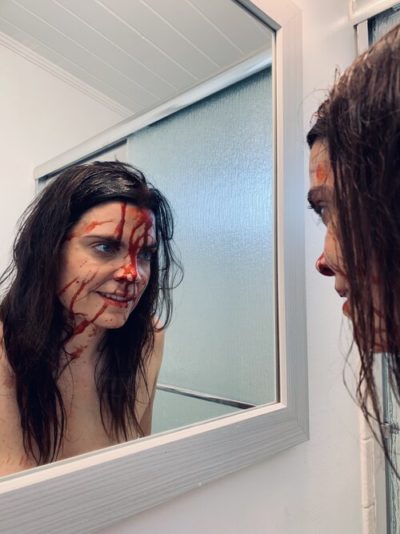 At least a star of the above rating is purely for the concept, which is one just brimming with potential. The problem here is entirely down to execution that isn’t just lacklustre, it’s entirely devoid of
At least a star of the above rating is purely for the concept, which is one just brimming with potential. The problem here is entirely down to execution that isn’t just lacklustre, it’s entirely devoid of  Firstly, I’m not quite sure whether this is a movie or not. The IMDb lists it with a running time of 98 minutes, but Tubi had it as 4 x 25-minute episodes. I’m guessing the former is just a compilation of the latter, it works about the same either way. The title translates as “The way of the empty hand”, and the emphasis here is very much on the first part: the journey. The heroine is Nicki Wright (G. Niebauer), who has barely got out of rehab for alcohol problems, when she gets involved in a brawl, after seeing a woman being assaulted by a man. Her mother had had enough of dealing with Nicki’s taciturn BS, and dumps her on her father, Cliff (D. Niebauer).
Firstly, I’m not quite sure whether this is a movie or not. The IMDb lists it with a running time of 98 minutes, but Tubi had it as 4 x 25-minute episodes. I’m guessing the former is just a compilation of the latter, it works about the same either way. The title translates as “The way of the empty hand”, and the emphasis here is very much on the first part: the journey. The heroine is Nicki Wright (G. Niebauer), who has barely got out of rehab for alcohol problems, when she gets involved in a brawl, after seeing a woman being assaulted by a man. Her mother had had enough of dealing with Nicki’s taciturn BS, and dumps her on her father, Cliff (D. Niebauer). Josie (Scott) is a babysitter, though her real interest is her work as a leader in the Girl Guide-like “Mustard Seed” summer camp. In this she mentors young girls, and accumulates some nifty skills of her own. This is relevant, due to her current situation. She’s taking care of Sophie (Hazen), the youngest daughter of the Castillo family. The father is a rich music mogul, and they live in a remote mansion, deep in the Utah mountains. The family come back early, but before Josie can leave – she’s playing hide and seek with Sophie – there’s a home invasion by three people, under the leadership of The Woman (Yeaman). They’re no regular burglars, but members of a Satanic cult, intent on retrieving artifacts hidden in the house by its previous owners. These can then be used to sacrifice the inhabitants, and open a portal for… something not very nice to enter our world.
Josie (Scott) is a babysitter, though her real interest is her work as a leader in the Girl Guide-like “Mustard Seed” summer camp. In this she mentors young girls, and accumulates some nifty skills of her own. This is relevant, due to her current situation. She’s taking care of Sophie (Hazen), the youngest daughter of the Castillo family. The father is a rich music mogul, and they live in a remote mansion, deep in the Utah mountains. The family come back early, but before Josie can leave – she’s playing hide and seek with Sophie – there’s a home invasion by three people, under the leadership of The Woman (Yeaman). They’re no regular burglars, but members of a Satanic cult, intent on retrieving artifacts hidden in the house by its previous owners. These can then be used to sacrifice the inhabitants, and open a portal for… something not very nice to enter our world. 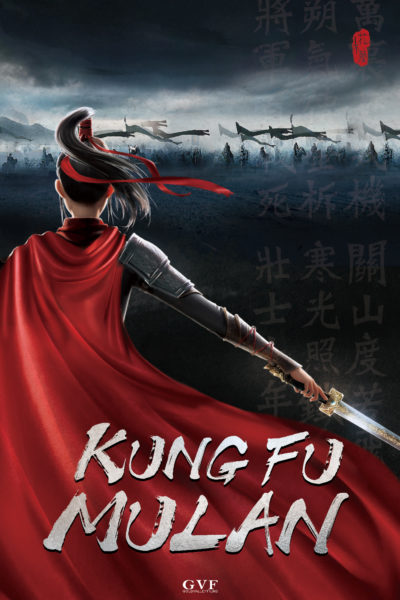 Going into this, I was expecting it to be really terrible. After all, this Chinese animated version seemed to be little more than a mockbuster, riding on the trails of Disney’s
Going into this, I was expecting it to be really terrible. After all, this Chinese animated version seemed to be little more than a mockbuster, riding on the trails of Disney’s 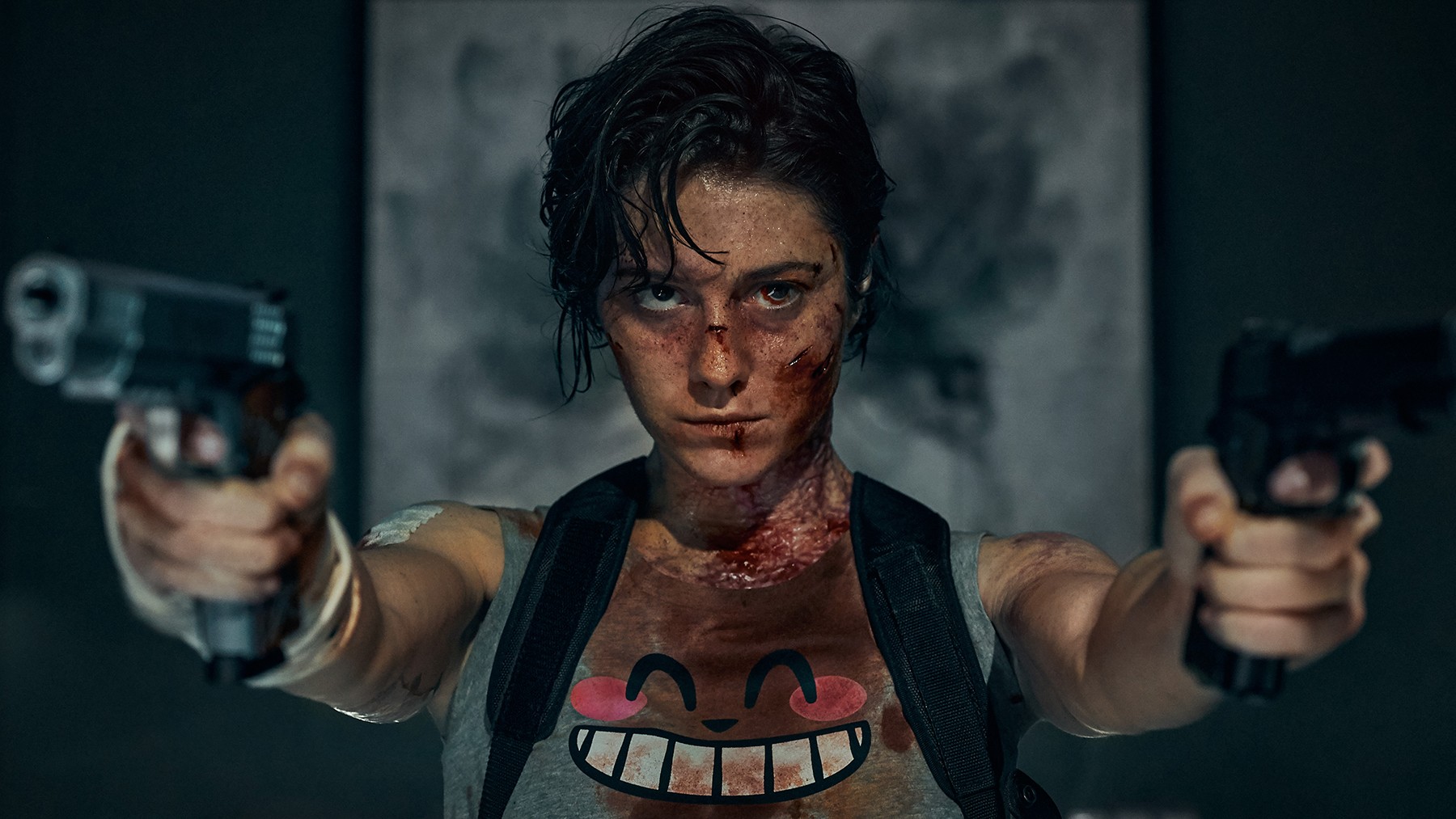 ★★★
★★★ There is also, quite often, some kind of emotional resonance, in the cases where the child is not biologically related [when that is the case, you don’t typically need or get any more explanation, blood being thicker than water]. Maybe the kid acts as a surrogate, a replacement for one previously lost (Alien), or the heroine could never have. Or if a girl, the protagonist can perhaps see a younger version of herself. The other common theme is the use of the child as a key, to unlock the adult. Often, the latter has lost her humanity, typically through harsh circumstances, becoming largely a lone figure, with her emotions suppressed. The “childlike innocence” of the young person, to use a cliché, can be used as a psychological crowbar, pricing open the hard shell of the grown-up, allowing them to reconnect with their humanity. The more emotionally-driven immaturity also stands in contrast to the adult’s stoicism, often to an extreme degree.
There is also, quite often, some kind of emotional resonance, in the cases where the child is not biologically related [when that is the case, you don’t typically need or get any more explanation, blood being thicker than water]. Maybe the kid acts as a surrogate, a replacement for one previously lost (Alien), or the heroine could never have. Or if a girl, the protagonist can perhaps see a younger version of herself. The other common theme is the use of the child as a key, to unlock the adult. Often, the latter has lost her humanity, typically through harsh circumstances, becoming largely a lone figure, with her emotions suppressed. The “childlike innocence” of the young person, to use a cliché, can be used as a psychological crowbar, pricing open the hard shell of the grown-up, allowing them to reconnect with their humanity. The more emotionally-driven immaturity also stands in contrast to the adult’s stoicism, often to an extreme degree. 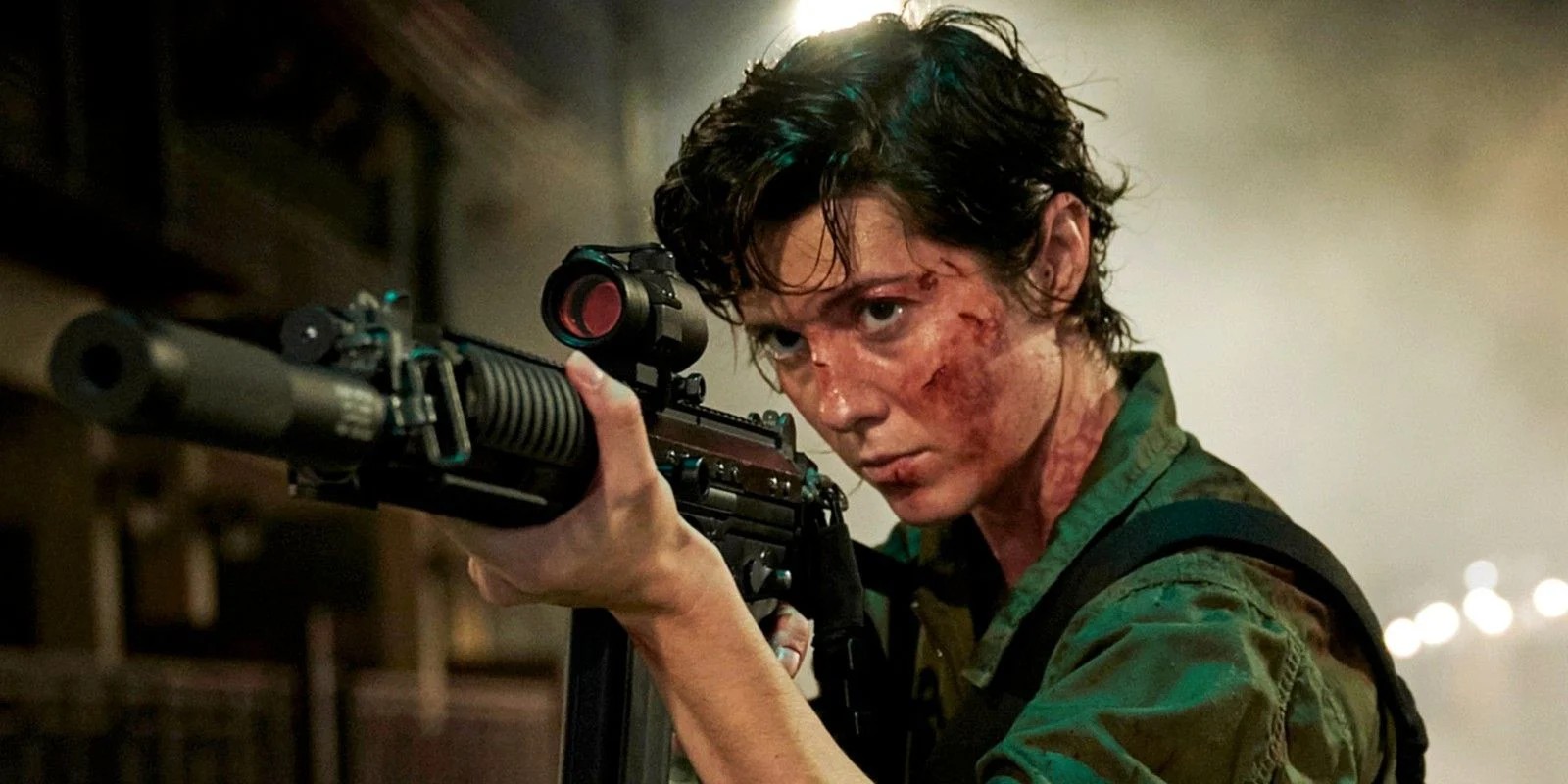
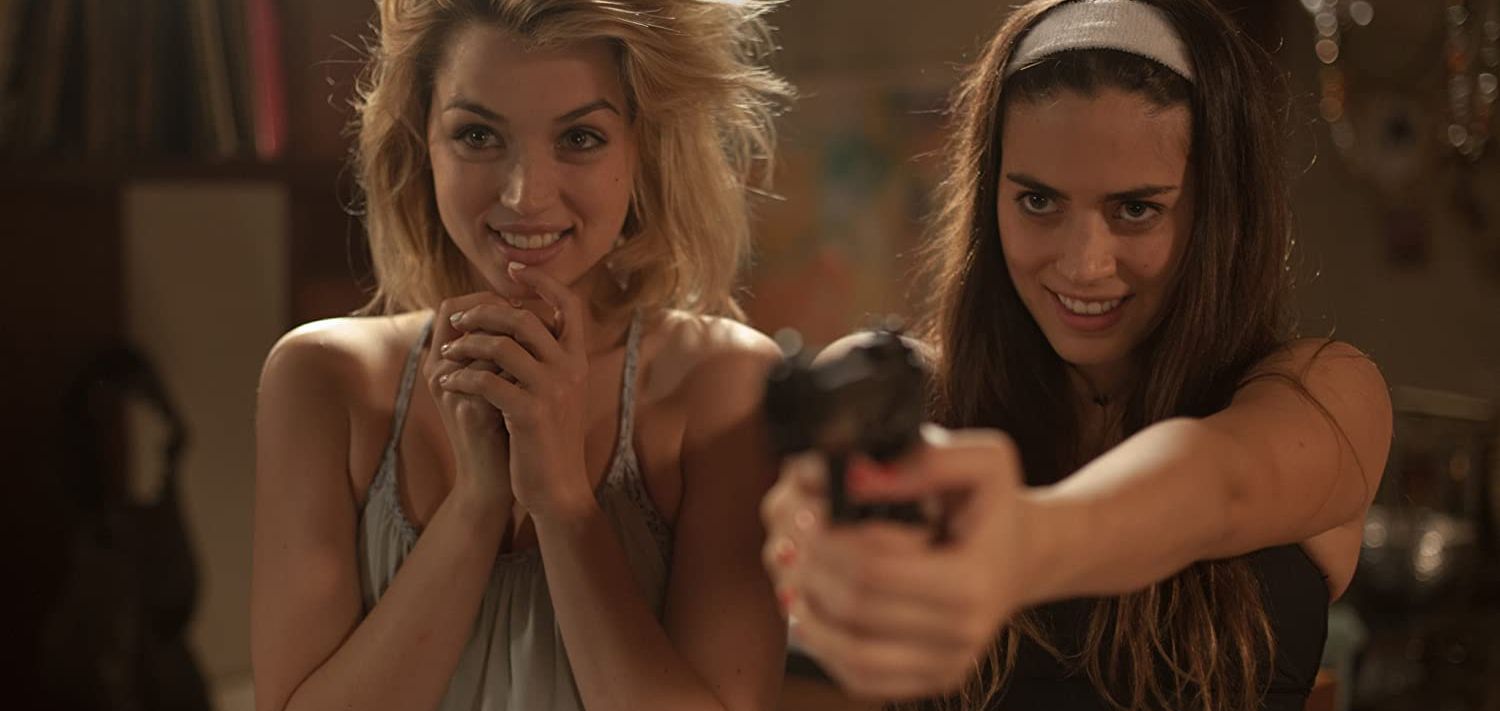 This is the kind of film which makes for very uncomfortable date night viewing, simply because the situation presented is likely to lead to awkward conversations. Happily married architect Evan Webber (Reeves) has the house to himself for the weekend, his wife having gone with their two kids to the seaside, leaving him free to work on a project. A stormy night ensues, until a knock at the door, and he finds two lost young women, Genesis (Izzo) and Bel (de Armas), shivering on the doorstep. He can hardly make them stay there, so lets them in. Almost immediately, something is wrong, though initially this falls into the “Too good to be true” category. For they are nymphomaniac flight attendants, and inevitably – though after a credible struggle – Evan succumbs to their relentless charms.
This is the kind of film which makes for very uncomfortable date night viewing, simply because the situation presented is likely to lead to awkward conversations. Happily married architect Evan Webber (Reeves) has the house to himself for the weekend, his wife having gone with their two kids to the seaside, leaving him free to work on a project. A stormy night ensues, until a knock at the door, and he finds two lost young women, Genesis (Izzo) and Bel (de Armas), shivering on the doorstep. He can hardly make them stay there, so lets them in. Almost immediately, something is wrong, though initially this falls into the “Too good to be true” category. For they are nymphomaniac flight attendants, and inevitably – though after a credible struggle – Evan succumbs to their relentless charms. Firstly, I’m still trying to figure out the relevance of the cover (right). With a heroine named Kat, why is there a dog pictured? It’s not as if she even owns one at any point. The “size of the fight” line… well, tenuous at best. I should probably have listened to my instincts and skipped this frankly implausible tale, about a teenage girl who is smart, attractive and a black-belt martial artist with 34E breasts. Yet she ends up having to get work as a stripper, a job at which she is naturally brilliant (thanks to adopting a pseudo-Xena persona), in order to keep her alcoholic mother out of debt. She breaks the arm of a particularly unpleasant customer, Alex, an act which gets her the attention of Alex’s business partner. He runs McKenzie Personal Security, and offers Kat a job as a trainee bodyguard.
Firstly, I’m still trying to figure out the relevance of the cover (right). With a heroine named Kat, why is there a dog pictured? It’s not as if she even owns one at any point. The “size of the fight” line… well, tenuous at best. I should probably have listened to my instincts and skipped this frankly implausible tale, about a teenage girl who is smart, attractive and a black-belt martial artist with 34E breasts. Yet she ends up having to get work as a stripper, a job at which she is naturally brilliant (thanks to adopting a pseudo-Xena persona), in order to keep her alcoholic mother out of debt. She breaks the arm of a particularly unpleasant customer, Alex, an act which gets her the attention of Alex’s business partner. He runs McKenzie Personal Security, and offers Kat a job as a trainee bodyguard. I reviewed the
I reviewed the  I remember how the first series of Killing Eve blew my socks off, and was completely unlike anything else on television. The second series fell short, but that was unsurprising – how could it be otherwise? – and there was still the chance for it to mount a course correction and recover. This third installment, however, has if anything accelerated the downward trend. What was once must-see television has become something which sits on in the background, typically as I surf the Internet on my phone. I can’t think of another series which has collapsed in such a remarkably brief time-frame.
I remember how the first series of Killing Eve blew my socks off, and was completely unlike anything else on television. The second series fell short, but that was unsurprising – how could it be otherwise? – and there was still the chance for it to mount a course correction and recover. This third installment, however, has if anything accelerated the downward trend. What was once must-see television has become something which sits on in the background, typically as I surf the Internet on my phone. I can’t think of another series which has collapsed in such a remarkably brief time-frame.